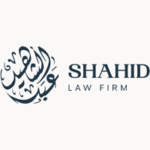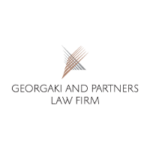-
What are the key rules/laws relevant to M&A and who are the key regulatory authorities?
Parties are generally free to negotiate the terms and conditions of M&A transactions, subject to compliance with mandatory laws and regulations. The key rules/laws relevant to M&A in Singapore and the regulatory authorities that administer them are summarized below.
Companies Act 1967 of Singapore (Companies Act)
The Companies Act is applicable to all companies incorporated, registered or carrying on business in Singapore. The Accounting and Corporate Regulatory Authority of Singapore (ACRA) is the authority with regulatory oversight and is responsible for the administration of the Companies Act.
Insolvency, Restructuring and Dissolution Act 2018 of Singapore (IRDA)
The IRDA is an omnibus legislation that consolidated all personal and corporate insolvency and debt restructuring legislation into a single statute, which came into force on 30 July 2020. The IRDA seeks to align the insolvency and debt restructuring procedures previously found in separate pieces of legislation and enhance Singapore’s insolvency and debt restructuring regime with the introduction of provisions relating to super-priority rescue financing and worldwide moratoriums. The IRDA, together with the Companies Act, provides for the protection of creditors by its various capital preservation provisions, such as the rule preventing the undervalued sale of a business and the prohibition against unfairly preferring one creditor over another in the event of a company’s insolvency and, particularly in relation to M&As, provisions on the prohibition of financial assistance by a company to the acquirer in the purchase of its shares.
Securities and Futures Act 2001 of Singapore (SFA)
Part 8 of the SFA sets out the primary legislative provisions relating to takeover offers in Singapore. Section 138 of the SFA provides for the establishment of the Securities Industry Council (SIC), the regulatory body which oversees and administers the Singapore Code on Take-overs and Mergers (elaborated below). The SIC is part of the Monetary Authority of Singapore (MAS).
Competition Act 2004 of Singapore (Competition Act)
If the transaction gives rise to competition and anti-trust issues, the Competition Act could also apply. Specifically, Section 54 of the Competition Act prohibits mergers that have resulted in or may be expected to result in, a substantial lessening of competition within any market in Singapore for goods and services.
The Competition and Consumer Commission of Singapore (CCCS) is the regulatory body overseeing the administration and enforcement of the Competition Act in Singapore. While there is no mandatory requirement for mergers to be notified to the CCCS, merger parties may voluntarily notify their transaction to the CCCS for a decision on whether the transaction will substantially lessen competition in Singapore. Parties to an M&A transaction should conduct self-assessments against the guidelines published by the CCCS to determine if there may be a substantial lessening of competition and a merger notification is necessary. Parties who choose not to notify mergers that raise competition concerns would risk the CCCS subsequently investigating the transaction on its own initiative. In the event that the CCCS finds that the merger will likely or has led to a substantial lessening of competition in Singapore, the parties may be liable to face financial penalties or other directions imposed by the CCCS which may include divestiture orders.
Significant Investments Review Act 2024 (SIRA)
The SIRA, which came into force on 28 March 2024, introduces a new layer of scrutiny for significant investments in strategic sectors. This Act aims to safeguard Singapore’s national security and critical economic interests by regulating ownership and control over designated entities which are deemed vital to Singapore’s national security and public interest. In general, M&A transactions involving the acquisition of control in a designated entity such that the buyer becomes a 12%, 25% or 50% controller in such entity, would be subject to government approval. Transactions completed without the requisite approvals will be rendered void. Buyers are also required to notify the Minister for Trade and Industry after they become a 5% controller in a designated entity. In addition, sellers must also seek approval from the Minister when they cease to become a 50% or 75% controller.
Investors and companies must therefore integrate SIRA-related assessments into their due diligence processes to determine whether a transaction falls within the purview of SIRA. Non-compliance with the SIRA, including failure to notify the authorities or proceeding with a transaction without obtaining the necessary approvals, can result in significant fines, divestment orders, or other corrective measures.
Singapore Code on Take-overs and Mergers (Takeover Code)
The Takeover Code, which is issued by the MAS, applies to the acquisition of voting control of:
- corporations (including corporations not incorporated under Singapore law) with a primary listing of their equity securities in Singapore;
- registered business trusts with a primary listing of their units in Singapore; and
- real estate investment trusts.
While the Takeover Code was drafted with listed public companies, listed registered business trusts and real estate investment trusts in mind, unlisted public companies and unlisted registered business trusts having more than 50 shareholders or unitholders and net tangible assets of S$5 million or more must also observe the letter and spirit of the General Principles and Rules of the Takeover Code wherever it is possible and appropriate. The Takeover Code does not apply to take-overs or mergers of other unlisted public companies and unlisted business trusts, or private companies. The Takeover Code adopts a self-regulatory regime, and the primary responsibility for ensuring compliance with the Takeover Code rests with parties (including company directors) to a take-over or merger and their advisers, not the SIC.
The Takeover Code does not have the force of law. However, the SIC has the power to impose sanctions for any breaches of the Takeover Code. These sanctions include private reprimands, public censure, or, where the breach is flagrant, further action as the SIC thinks fit, such as actions designed to deprive the offender temporarily or permanently of its ability to enjoy the facilities of the securities market and/or requiring existing and former holders of the securities of the offeree company to be compensated.
In the case of breaches by advisers (including lawyers), the SIC may require such adviser to abstain from taking on Takeover Code-related work for a period of time.
Listing Manual of the Singapore Exchange Securities Trading Limited (Listing Manual)
Where the buyer, seller or target company is listed on the Singapore Exchange Securities Trading Limited (SGX-ST), the listing rules of the SGX-ST as set out in the Listing Manual will be applicable in relation to the transaction. In particular, relevant disclosures will have to be made if the transaction is considered an interested person transaction, discloseable transaction, major transaction or very substantial acquisition or reverse takeover, within the meaning of the listing rules.
Industry Specific Regulations
In Singapore, M&A transactions involving the acquisition of ownership and/or control in entities in certain industries may be subject to various industry-specific regulations, particularly in sectors that are highly regulated due to national security, economic stability, or consumer protection concerns. Some key industry-specific regulations that apply to M&A transactions include:
(i) Banking & Financial Services
Prior approval from the MAS is required where a person gains effective control of an entity holding a Capital Markets Services (CMS) licence, by virtue of, inter alia, holding directly or indirectly, 20% or more of the issued share capital or voting power in the CMS licence-holder. The MAS strictly regulates ownership changes in CMS-licensed firms to ensure that shareholders meet fit and proper criteria, and to reduce risks associated with money laundering, financial instability, or improper market influence.
Under the Banking Act 1970 of Singapore, a person (whether resident in Singapore or not) acquiring 5% or more of a Singapore-incorporated bank’s shares or becoming a substantial shareholder of a Singapore-incorporated bank, must obtain prior approval from the MAS. As for other non-bank financial institutions regulated by the MAS, there are generally no express foreign ownership requirements save for certain exceptions.
(ii) Telecommunications and Media
M&A transactions in the telecommunications and media sector are regulated by the Infocomm Media Development Authority (IMDA). For instance, where a transaction involves the transfer of equity interests in a designated telecommunications licensee, approval from the IMDA is required, if a person becomes a 12% controller (as defined under the Telecommunications Act 1999 of Singapore) or a 30% controller of such licensee, or if a person obtains effective control of a designated telecommunications licensee.
Under Part 10 of the Broadcasting Act 1994 of Singapore, the IMDA’s prior approval is required for any person to become a substantial shareholder of a broadcasting company, or for a person to enter into any agreement or arrangement to act together with any other person with respect to the acquisition, holding or disposal of, or the exercise of rights in relation to, their interests in voting shares of an aggregate of more than 5% of the total votes attached to all voting shares in a broadcasting company. Prior approval from the IMDA is also required for becoming a 12% controller or indirect controller of a broadcasting company. Further, the IMDA will not grant a broadcasting license to domestic broadcasting companies if they are controlled by foreign investors or if foreign investors hold more than 49% of the company’s shares or voting power, unless with the Minister’s approval.
(iii) Electricity and Gas
Similarly, M&A transactions in the electricity and gas sectors in Singapore are subject to strict regulatory oversight by the Energy Market Authority (EMA). This is to ensure continued energy security, market stability, and compliance with competition laws. Companies in these sectors which are seeking to undertake M&A transactions must obtain the relevant approvals from EMA. For instance, pursuant to the Electricity Act 2001 of Singapore, approval of the EMA is required where a person becomes a 12% controller (as defined under the Act), or 30% controller or an indirect controller of a designated electricity licensee, or for the acquisition as a going concern of the business or any part of the business of a designated electricity licensee.
-
What is the current state of the market?
The global M&A market is showing signs of a steady but slow recovery after a period of subdued activity in previous years. In 2024, global M&A activity experienced a moderate uptick, reflecting a 12% increase in deal value to approximately US$3.4 trillion1. The easing of inflation, lower interest rates, and recovering valuations through much of last year have heightened expectations among dealmakers around the globe for increased M&A activity in 2025.
The Asia-Pacific (APAC) region remains a pivotal contributor to global M&A activity. In 2024, APAC region recorded over 11,000 deals, totaling approximately US$889.4 billion2. While this represented a 6.9% decrease in deal value compared to 2023, the latter half of the year saw a resurgence in activity, with several countries experiencing notable growth. China took the lead with a deal volume of US$278.1 billion, followed by significant contributions from Japan, India, and Australia. While deal volume declined across all regions in 2024, APAC stood out with a relatively modest decrease. Unlike North America and South & Central America, which experienced double-digit declines, APAC’s decline was the smallest among all regions, reflecting its comparatively stronger performance in a challenging global market3.
M&A activity in Southeast Asia (SEA) fell to a 15-year low in 2024, with deal volumes decreasing by 34% year-on-year to approximately US$22 billion in the first half of the year. This decline was more pronounced than in the broader Asia-Pacific region. In the first nine months of 2024, SEA deal value dropped by 51% compared with the same period in 20234. Despite the challenges, SEA is poised for increased M&A activity, driven by strong economic prospects, digital transformation, and a rise in cross-border transactions within the region. The region’s GDP is projected to grow by 4.9% in 2025, fueled by robust domestic demand.5 The technology sector is expected to experience high levels of deal activity as companies capitalize on further digital adoption.
Regulatory reforms such as Vietnam’s Law on Investment and the Philippines’ Foreign Investment Act have heightened the appeal of the region to foreign buyers. SEA has emerged as an attractive destination for international entities seeking expansion opportunities, particularly investors from the wider Asia-Pacific region such as China and Japan.6 Singapore continues to lead M&A activity in the SEA region, accounting for 35% of the total M&A deal volume in 2024.7 This is largely driven by its favourable investment climate and well-developed financial sector. In 2024, M&A transactions involving Singapore companies reached approximately US$51 billion, marking a 29% increase from the same period in 2023.8 As at early 2025, Singapore’s M&A market has demonstrated robust growth, solidifying its status as a regional hub for such activities in SEA.
The M&A landscape in Singapore is expected to remain active in 2025, driven by factors such as digital transformation, advancements in artificial intelligence, and the need for investment in key sectors like energy and technology. As interest rates stabilize and the macroeconomic picture becomes clearer, valuations are anticipated to become more certain, fostering increased dealmaking within SEA and driving further growth.
Footnote(s):
1 https://www.mckinsey.com/capabilities/m-and-a/our-insights/top-m-and-a-trends
2 https://www.pwc.com/ph/en/deals-corporate-finance/deals-publications/2024-ap-ma-report.html?
3 Ibid.
4 Ibid.
5 Ibid.
6 https://www.bcg.com/publications/2024/m-and-a-regional-markets-overview?utm
7 https://www.pwc.com/ph/en/deals-corporate-finance/deals-publications/2024-ap-ma-report.html
-
Which market sectors have been particularly active recently?
Globally, the three most active sectors for Private Equity (PE) investments have been technology, media, and telecommunications (TMT) and financial institutions and real estate.9 In the APAC region, key sectors such as industrials, technology, and consumer & retail exhibited strong growth potential. The region contributed to 27.1% of the global deal count in 2024, the region underscored its crucial role in the global economy and its strong appeal to investors.10
TMT remains a dominant M&A theme across the APAC region. The rise of fintech is significantly influenced by the synergy between the telecommunications and financial services sectors, providing a fertile ground for M&A activity. By leveraging their technological expertise and infrastructure, mobile companies can collaborate to deliver innovative digital banking services and mobile payment solutions. Investments in 5G infrastructure remain a key driver, as telecoms operators race to expand network coverage and capitalize on the growing demand for high-speed connectivity. Greater China, India, and SEA are leading this charge, supported by government initiatives and private sector partnerships11.
While the industrials and chemicals sector fell behind the TMT sector in terms of volume, from a relative performance perspective, no other industry exhibited a larger annual gain in the APAC region.
The third-highest value sector for M&A in the Asia Pacific region was the consumer sector, racking up a total deal value of US$117 billion. The M&A volume in the APAC consumer sector increased by 16.4% year-on-year, rising to 895 deals from 769 in 2023. Deal value experienced an even more substantial surge, nearly tripling to US$117 billion from US$41 billion the previous year. This sharp growth was primarily fueled by robust activity in Q3, which alone contributed US$74 billion in deals—almost two-thirds of the total for the year12.
In Singapore, the financial sector emerged as the most active domain for M&A transactions, accounting for nearly 20% of market share with deals worth US$10 billion, a 36% increase from 2023, followed by the real estate sector, comprising 15% of the market with deals totaling USD 7.7 billion. In contrast, the industrial sector experienced a sharp decline, capturing just US$4.5 billion, down 44% on the first nine months of 202313.
Footnote(s):
9 https://www.bcg.com/publications/2024/early-signs-of-recovery
10 https://www.pwc.com/ph/en/deals-corporate-finance/deals-publications/2024-ap-ma-report.html
11 “Deal Drivers: APAC FY 2024”, page 5. 18 February 2025. Datasite, in partnership with Mergermarket. Retrieved from: https://www.datasite.com/en/resources/insights/deal-drivers-apac-fy-2024
12 “Deal Drivers: APAC FY 2024”, page 16. 18 February 2025. Datasite, in partnership with Mergermarket. Retrieved from: https://www.datasite.com/en/resources/insights/deal-drivers-apac-fy-2024
-
What do you believe will be the three most significant factors influencing M&A activity over the next 2 years?
As regulatory and political environments evolve and economic conditions stabilize, the APAC M&A market is poised for a resilient and adaptable future, led by sectors such as industrials and technology. The re-election of Donald Trump in the United States has introduced new factors into the M&A landscape, with his administration’s trade and regulatory policies likely to impact cross-border transactions and corporate strategies. These shifts highlight APAC’s capacity to drive global M&A activity, even in the face of economic uncertainties.
- Economic Recovery and Interest Rate Trends: One of the most critical factors impacting M&A activity in SEA and Singapore is the evolving global economic landscape and interest rate trends. Following the economic disruptions of recent years, the region is experiencing a steady recovery, supported by strong GDP growth in key markets such as Indonesia, Vietnam, and the Philippines.14 A crucial element to watch is the potential lowering of interest rates by major central banks, including the U.S. Federal Reserve. Lower borrowing costs can make M&A financing more attractive, leading to a rise in leveraged buyouts and corporate acquisitions. In Singapore, the country’s economic stability and role as a financial hub will likely draw both inbound and outbound M&A activity, particularly as investors seek opportunities in high-growth sectors. Additionally, corporate restructuring and divestments will play a key role in shaping the M&A landscape.
- Industry-Specific Growth and Consolidation: Sector-specific trends are expected to be a major driver of M&A activity, particularly in industries undergoing rapid transformation or consolidation. Specifically SEA’s booming digital economy, fueled by fintech, artificial intelligence (AI) technology, and e-commerce, is driving significant M&A interest. Companies are actively seeking acquisitions to expand market share, enhance technological capabilities, and achieve scale in the competitive digital landscape. In Singapore, where fintech innovation is thriving, M&A deals in this space are expected to surge.
- Geopolitical and Regulatory Developments: M&A activity is increasingly influenced by geopolitical dynamics and evolving regulatory landscapes. As governments adapt to shifting global trade dynamics, investment policies, and economic realignments, companies looking to engage in M&A must navigate evolving challenges and opportunities. The ongoing trade tensions between the United States and China continue to reshape global investment strategies. With rising tariffs, export controls, and geopolitical uncertainties, multinational corporations are looking to diversify their supply chains away from China, driving increased M&A activity in SEA. Pro-business regulations, tax benefits, and investment incentives across SEA markets, particularly in Vietnam and Indonesia, will continue to attract global acquirers. Singapore, known for its investor-friendly environment and as a politically stable financial hub, will remain a key destination for dealmaking, particularly in financial services and technology.
Footnote(s):
14 https://arc-group.com/philippines-mergers-acquisitions-southeast-asia/
-
What are the key means of effecting the acquisition of a publicly traded company?
The key means of effecting the acquisition of a publicly traded company in Singapore include general offers, schemes of arrangement, reverse takeovers and voluntary de-listings.
General offers
Under the Takeover Code, general offers may take the following forms:
- mandatory offer, which is triggered by the offeror acquiring shares which result in the shareholdings of the offeror in the target, together with those of parties acting in concert with it, crossing the stipulated thresholds (see Question 26);
- voluntary offer, which is made on a voluntary basis by the offeror; and
- partial offer, where a voluntary offer is made for a certain portion of the target’s shares only.
Schemes of Arrangement
A scheme of arrangement is a statutory procedure which requires:
- the approval of a majority in number of shareholders of the target (unless the High Court of Singapore orders otherwise) present and voting in person or by proxy, with that majority also representing at least 75% in value of the shares voted at the scheme meeting; and
- the sanction of the High Court.
Once sanctioned by the High Court, a scheme would bind all shareholders of the target, including dissenting shareholders.
Typically, a scheme would be structured such that the shares in the target are transferred from the target’s shareholders to the acquirer, in consideration for either cash or new shares to be issued in the acquirer (or a combination of both).
Reverse takeovers
In a reverse takeover transaction, the acquirer (typically a listed company) acquires all or a majority of the shares of the target (being a private company). The purchase consideration for the acquisition will typically be satisfied (in whole or in part) by the acquirer issuing shares to the existing shareholders of the target (vendors), such that following the completion of the acquisition, the vendors would become the controlling or majority shareholders of the acquirer. The vendors may then be required to make or may decide to make a takeover offer for the remaining shares in the target that it does not own. As a result of the transaction, the vendors gain control of the listed company. Such transactions are subject to additional approvals and requirements by the SGX-ST, SIC as well as the approval of the target’s shareholders.
Voluntary de-listings pursuant to an Exit Offer
If a target is seeking to de-list from the SGX-ST, an exit offer must be made to the target’s shareholders. The exit offer must be fair and reasonable and must include a cash offer as a default alternative. The target is also required to appoint an independent financial adviser to advise on the exit offer and the independent financial adviser must opine that the exit offer is fair and reasonable.
Following the exit offer, the target may seek a voluntary de-listing, which is subject to the approval of the SGX-ST. The SGX-ST may agree to an application to de-list from the SGX-ST if:
- The target convenes a general meeting of its shareholders to seek their approval for the de-listing.
- Such resolution to de-list has been approved by a majority of at least 75% of the total number of issued target shares (excluding treasury shares and subsidiary holdings) held by shareholders of the target present and voting at the general meeting. The offeror and parties acting in concert with it must abstain from voting on such resolution.
-
What information relating to a target company is publicly available and to what extent is a target company obliged to disclose diligence related information to a potential acquirer?
In respect of Singapore incorporated companies, information available from its filings with the ACRA and which are publicly available include details of the company’s issued share capital, details of the company’s directors and shareholders (and their respective shareholdings) and copies of the company’s constitutional documents. It is also possible to conduct litigation and winding up searches with the Singapore courts in respect of a target company, which will reveal if any litigation or winding up proceedings has been taken or is pending against the target company. It is not possible to conduct arbitration searches in Singapore.
Other information in the public domain may be accessible through the target company’s website, and in any prospectus, announcement or circular which the target company has released. This is particularly relevant in the case of publicly listed target companies, which are required under the rules of the Listing Manual to publicly release periodic financial information and other routine information (e.g. the results of general meetings) and to disclose any price-sensitive developments, including significant acquisitions and disposals.
In private M&A transactions, a due diligence exercise is often undertaken by the buyer and would typically cover legal, financial, commercial and tax matters of the target company. The selling shareholders and/or management of the target company will provide answers to a due diligence request list provided by the buyer and its advisers, and information and documents are typically provided via a data room.
In a bid process, a due diligence report may be provided by the seller as part of the auction process. Documents and information in relation to the target company which are deemed relevant would usually be provided to bidders via a data room. At the final negotiation stage, the final bidders may undertake confirmatory due diligence on sensitive commercial information which have not been provided in the earlier phases.
In a public M&A transaction, the buyer will initially conduct due diligence based on publicly available information. The management of the target company is not legally required to assist the bidder with its due diligence enquiries. However, the board of directors of the target company may choose to authorize certain disclosures to the offeror, subject to the relevant restrictions on disclosure. The directors of the target company, in deciding whether to provide information sought by an offeror, must consider their fiduciary duty to act in the best interests of the target and its shareholders as a whole.
-
To what level of detail is due diligence customarily undertaken?
The extent of due diligence would generally depend on the specific concerns of the buyer as well as its time and cost constraints. Typically, legal due diligence would cover corporate information (such as title to shares, constitutional documents and share capital of the target), material assets, material contracts, banking and financing documents, licenses and regulatory approvals, employee matters and material litigation.
Buyers are increasingly seeking red flags (i.e. exceptions only) due diligence reports and preferring to undertake targeted due diligence focusing on issues which they consider to be most material in the context of the transaction.
-
What are the key decision-making bodies within a target company and what approval rights do shareholders have?
In both public and private M&A transactions, the target company’s board of directors is the key decision-making body. Directors of the target company must have regard to their fiduciary duties and act in the best interests of the company for the benefit of the shareholders.
In a private M&A transaction, specific shareholder approval is not typically required unless the transaction specifically requires shareholder approval under Singapore legislation or a shareholders’ agreement or under the company’s constitution.
Shareholders in a public M&A transaction will be able to either accept a takeover offer in respect of their shares or vote to approve a scheme of arrangement.
-
What are the duties of the directors and controlling shareholders of a target company?
Under common law, a company’s directors owe fiduciary duties to the company, including the duty to act in good faith and in the best interests of the company. The Companies Act also imposes a statutory duty on a director to act honestly and use reasonable diligence in the discharge of the duties of his/her office at all times.
In respect of public M&A transactions, the Takeover Code sets out several requirements in relation to the responsibilities and conduct of the target company’s directors (in addition to those which exist under common law and under the Companies Act). All directors of a target company are collectively responsible for the target company’s compliance with the Takeover Code, and this extends to situations in which powers are delegated to an individual director or a committee. In addition, the Takeover Code requires that all directors of a target company take responsibility for the documents published in connection with a takeover offer (see Question 22), and directors who believe that they may face conflicts of interests in situations should generally consult the SIC on whether it is appropriate for them to assume responsibility for any recommendations on the offer that the board may make to the target company’s shareholders.
Shareholders do not owe fiduciary duties to the company or to other shareholders, whether they are controlling shareholders or otherwise.
-
Do employees/other stakeholders have any specific approval, consultation or other rights?
In general, employees have no statutory right to be consulted or otherwise to participate in the management of companies in Singapore.
In a scheme of arrangement, creditors are statutorily entitled to be notified of material facts in relation to the scheme which are relevant to them15, and they will also get to vote on the scheme16.
Footnote(s):
15 Section 211(1)(a), Companies Act
16 Section 210(3)(a), Companies Act
-
To what degree is conditionality an accepted market feature on acquisitions?
Private M&A transactions are usually subject to closing conditions, which is a matter of negotiation between the parties to the transaction. Typical closing conditions include the receipt of relevant governmental or regulatory approvals (if there are specific legal or regulatory requirements to be satisfied before closing) and the obtainment of corporate approvals by the relevant parties in respect of the transaction. It is also common for buyers to seek conditions as to the accuracy of representations and warranties provided by the seller and the absence of any material adverse change with respect to the target company as at closing.
Under the Takeover Code, a takeover offer may include (i) pre-conditions that need to be satisfied or waived before the offer document is sent to target shareholders and/or (ii) conditions that need to be satisfied in order to conclude the takeover offer.
Pre-conditions
An offeror can announce a pre-conditional voluntary offer where the announcement of a firm intention to make an offer is subject to the fulfilment of certain pre-conditions, subject to certain requirements prescribed by the Takeover Code. In such cases, the pre-conditions should be stated clearly in the pre-conditional offer announcement. Such pre-conditions must be objective and reasonable, and the pre-conditional offer announcement must specify a reasonable period for the fulfilment of the pre-conditions, failing which the offer will lapse. No pre-condition should be relied on to cause the offer to lapse unless the offeror has demonstrated reasonable efforts to fulfil the conditions within the time period specified and the circumstances that give rise to the right to rely on the conditions are material in the context of the proposed transaction.
Minimum acceptance condition
Under the Takeover Code, a takeover offer must be conditional on a minimum level of acceptance. Specifically:
- A mandatory offer must be conditional upon an offeror receiving acceptances which will result in the offeror, and parties acting in concert with it, holding more than 50% of the voting rights of the target, except with the consent of the SIC.
- A voluntary offer must be conditional on an offeror receiving acceptances which will result in the offeror, and parties acting in concert with it, holding more than 50% of the voting rights of the target, save that the offeror may impose a higher minimum acceptance condition with the approval of the SIC.
- A partial offer which could result in the offeror, and parties acting in concert with it, holding more than 50% of the voting rights of the target must be conditional on the specified number or percentage of acceptances being received, and approval by the target’s shareholders.
Other conditions
In the case of a mandatory offer, no conditions can be attached apart from the minimum acceptance condition, except with the approval of the SIC.
In the case of a voluntary or partial offer, the offer must not be made subject to conditions which fulfilment depends on the subjective interpretation or judgement by the offeror or lies in the offeror’s hands. Conditions concerning the level of acceptance, approval of shareholders for the issue of new shares as consideration and the approval of the SGX-ST for the listing and quotation of new shares can be attached without reference to the SIC. However, the SIC should be consulted where any other conditions are proposed to be attached.
-
What steps can an acquirer of a target company take to secure deal exclusivity?
In private M&A transactions, parties are generally free to agree to any deal protection measures that they deem fit. Examples of these include entering into exclusivity agreements and break fee arrangements. Break fee arrangements are, however, uncommon in private M&A transactions in Singapore.
In public M&A transactions, where the acquisition involves a target company to which the Takeover Code applies, the Takeover Code sets out certain rules governing break fee arrangements. Specifically, break fees imposed must be minimal, normally not more than 1% of the value of the target company calculated by reference to the offer price. The board of directors of the target company, as well as the independent financial adviser to the target company are also required under the Takeover Code to provide certain written confirmations to the SIC, including confirmations (i) that the break fee arrangements were agreed as a result of normal commercial negotiations and (ii) that they each believe that such arrangement is in the best interests of the shareholders of the target company. An explanation of the basis (including appropriateness) and the circumstances in which the break fee becomes payable must also be provided to the SIC. Additionally, the break fee arrangement must be fully disclosed in the offer announcement and the offer document. The SIC must be consulted at the earliest opportunity where a break fee or similar arrangements are proposed.
-
What other deal protection and costs coverage mechanisms are most frequently used by acquirers?
Please refer to Question 12 above.
-
Which forms of consideration are most commonly used?
In public M&A transactions, consideration is commonly cash, securities or a combination of the two. The Takeover Code does however set out certain limited instances where either a cash or a securities offer is required.
The Takeover Code requires an offeror to offer cash (or include a cash alternative) if the offer is a mandatory offer.
A cash offer is required where the offeror and any person acting in concert with it has bought for cash during the offer period and within six months prior to its commencement, shares of any class under offer in the target carrying 10% or more of the voting rights of that class.
The Takeover Code also requires an offeror to offer securities as consideration where purchases of any class of the target company shares carrying 10% or more of the voting rights have been made by an offeror or any person acting in concert with it in exchange for securities during the offer period and in the three months prior to the commencement of the offer period. In such cases, the relevant securities will normally be required to be offered to all other holders of shares of that class.
In private M&A transactions, cash, securities or a combination of the two are commonly used.
-
At what ownership levels by an acquirer is public disclosure required (whether acquiring a target company as a whole or a minority stake)?
Shareholders of listed companies must disclose to the company:
- When they become or cease to become a substantial shareholder of the company. A “substantial shareholder” is a shareholder who owns not less than 5% of the total votes attached to all voting shares in a company.
- When there is a percentage level change in their substantial shareholding.
This information must be disclosed within two business days from the event occurring. These disclosures must then be publicly released by the listed company as soon as practicable and in any case, no later than the end of the business day following the day on which it received the notice.
-
At what stage of negotiation is public disclosure required or customary?
In a transaction to which the Takeover Code applies, the Takeover Code makes clear that absolute secrecy must be maintained before an announcement of a takeover offer is made. All persons privy to confidential information, particularly relating to an offer or contemplated offer, must treat that information as secret and may pass it to another person only if it is necessary to do so and if such person is made aware of the need for secrecy. It is good practice for the offeror and its advisers to maintain a list of notified persons. Where there is a leak regarding such a potential transaction, the offeror is expected by the SIC to make an announcement clarifying its position.
Announcements by Offeror
Before the target board is approached, the responsibility for making an announcement will normally rest with the offeror or potential offeror. The offeror or potential offeror must make an announcement:
- when, before an approach has been made to the target, the target is the subject of rumour or speculation about a possible offer, or there is undue movement in its share price or a significant increase in the volume of share turnover, and there are reasonable grounds for concluding that it is the potential offeror’s actions (whether through inadequate security measures, purchase of the target’s shares or otherwise) which have directly contributed to the situation; or
- immediately upon an acquisition of shares which gives rise to an obligation to make a mandatory offer.
Following an approach to the target board which may or may not lead to an offer, the primary responsibility for making an announcement will normally rest with the target board. The target board must make an announcement:
- when it receives notification of a firm intention to make an offer from a serious source. Irrespective of whether the target board views the offer favourably or otherwise, it must inform its shareholders without delay and must issue a paid press notice or, where the offeror has published a paid press notice, an announcement;
- when, following an approach to the target, the target is the subject of rumour or speculation about a possible offer, or there is undue movement in its share price or a significant increase in the volume of share turnover, whether or not there is a firm intention to make an offer;
- when negotiations or discussions between the offeror and the target are about to be extended to include more than a very restricted number of people; or
- when it is aware that there are negotiations or discussions between a potential offeror and the holder, or holders, of shares carrying 30% or more of the voting rights of a company or when it is seeking potential offerors, and (i) the target is the subject of rumour or speculation about a possible offer, or there is undue movement in its share price or a significant increase in the volume of share turnover or (ii) more than a very restricted number of potential purchasers or offerors are about to be approached.
Announcements by potential vendor
Before the target’s board is approached, holder(s) of shares carrying 30% or more of the target’s voting rights who held or are holding negotiations or discussions with a potential acquirer must make an announcement if the target company then becomes the subject of rumour or speculation about a possible offer, or there is undue movement in its share price or a significant increase in the volume of share turnover and there are reasonable grounds for concluding that it is the potential vendor’s actions (whether through inadequate security measures or otherwise) which have contributed to the situation. The target, if listed, may then have to make an announcement to the SGX-ST accordingly, in compliance with the Listing Manual’s corporate disclosure policy.
-
Is there any maximum time period for negotiations or due diligence?
In the context of private M&A transactions, there are no time limits for negotiation or due diligence – this is the subject of commercial negotiations.
In public M&A transactions, while there are no maximum time periods specified for negotiations or due diligence, the Takeover Code does impose a strict timetable on the actual takeover process which must be complied with.
-
Is there any maximum time period between announcement of a transaction and completion of a transaction?
In Singapore, there is no statutory maximum time period between the announcement and completion of a private M&A transaction. The duration can vary significantly depending on the complexity of the deal, regulatory approvals, due diligence processes, and negotiations between the parties involved. While there is no legal maximum time frame, delays beyond a reasonable period may risk deal uncertainty or renegotiations. In some cases, agreements include long-stop dates, where parties agree on a deadline for completion, after which the deal may be terminated.
In public M&A transactions however, specific timelines may apply, such as the requirement for the target company to announce material information within specific time periods. These timelines are generally governed by the Takeover Code and the Listing Manual.
-
Are there any circumstances where a minimum price may be set for the shares in a target company?
In a private M&A transaction, parties are free to determine the purchase price and this is subject to commercial negotiations between buyer and seller.
In a public M&A transaction, there are certain circumstances in which the Takeover Code imposes minimum levels of consideration that must be offered to the target company’s shareholders. If acquisitions of voting rights in the target company are made by the offeror or any parties acting in concert with it during the offer period or in the three months (in the case of voluntary offers) or six months (in the case of mandatory offers) prior to the commencement of the offer period, the minimum level of consideration would be the highest price paid by the offeror or its concert parties (as the case may be) during such period.
-
Is it possible for target companies to provide financial assistance?
Section 76(1) of the Companies Act provides that a public company or a subsidiary of a public company in Singapore may not, whether directly or indirectly, give financial assistance to potential buyers in connection with the acquisition of its own shares or the shares of its Singapore public holding company, unless otherwise expressly provided by the Companies Act. Financial assistance includes the making of a loan, giving of a guarantee, provision of a security or indemnity and waiver or release of an obligation or a debt or otherwise. Section 76 of the Companies Act also sets out certain exceptions to the general prohibition against financial assistance and the relevant “whitewash” procedures which must be undertaken in order for such companies to provide the relevant financial assistance.
A Singapore private company that does not fall within the scope of the prohibition set out in the preceding paragraph is not restricted from providing financial assistance to potential buyers in connection with the acquisition of its own shares or the shares in its holding company. However, directors of such target company are required to have due regard to their duties under the Companies Act and under common law to act in the best interests of the company in determining whether the giving of financial assistance is appropriate in each case.
-
Which governing law is customarily used on acquisitions?
Parties are generally free to decide on the governing law of the transaction documents although Singapore law is customarily used for acquisitions involving Singapore target companies.
-
What public-facing documentation must a buyer produce in connection with the acquisition of a listed company?
Public-facing documents that the buyer must produce in a takeover process include the following:
- The offer announcement announcing its firm intention to make an offer.
- The various other announcements as required by the Takeover Code.
- The offer document containing the terms of the offer and the relevant acceptance forms which will be used by the target company’s shareholders to accept the offer, should they so decide.
All such documents must contain a responsibility statement from all directors of the company issuing the document, jointly and severally accepting full responsibility for the accuracy of information contained in the document and confirming, having made all reasonable inquiries, that to the best of their knowledge, opinions expressed in the document have been arrived at after due and careful consideration and there are no other facts not contained in the document, the omission of which would make any statement in the document misleading.
-
What formalities are required in order to document a transfer of shares, including any local transfer taxes or duties?
Generally, transfers of shares in both private and public companies must be made using a share transfer form unless the shares in question are held in scripless form through The Central Depository (Pte) Ltd (CDP), in which case a transfer would be effected electronically via the CDP.
In the case of a transfer of shares in a private company incorporated under the Companies Act, such transfer is not effective until the electronic register of members (EROM) of the company maintained by the ACRA is updated to reflect the share transfer.
Stamp duty is payable on certain written agreements and transfer instruments in relation to the transfer of shares. The rate of stamp duty for the transfer of shares in a Singapore company is currently 0.2% of the consideration or the net asset value of the shares transferred (whichever is higher). Stamp duty must be paid within 14 days of the execution of the document (if executed in Singapore), and within 30 days of the receipt of the document in Singapore, in the case of documents executed outside Singapore.
Stamp duty is not payable in respect of a transfer of scripless shares via the CDP.
-
Are hostile acquisitions a common feature?
Hostile acquisitions are permitted in Singapore, however they are not common.
-
What protections do directors of a target company have against a hostile approach?
The directors of a target company are required to act in accordance with their fiduciary and statutory duties, including the duty to act in the best interests of the company for the shareholders as a whole.
Under the Takeover Code, if a target company’s board has reason to believe that a bona fide offer is imminent, the board may not, except pursuant to a contract entered into earlier, take any action which could effectively result in any bona fide offer being frustrated or the target’s shareholders being denied an opportunity to decide on its merits, without shareholders’ approval. Such frustrating actions include issuing of shares, granting of options in respect of unissued shares, creating or issuing of securities carrying rights of conversion or subscription for shares, selling or acquiring of assets of a material amount and entering into contracts otherwise than in the ordinary course of business.
The SIC will not normally treat actions by the target’s board in soliciting a competing offer or running a sale process for the target company as frustrating actions, as a better offer or an alternative offer is generally in the interest of the target’s shareholders.
-
Are there circumstances where a buyer may have to make a mandatory or compulsory offer for a target company?
Pursuant to the Takeover Code, the obligation to make a mandatory offer would be triggered in either of the following cases:
- when a person acquires, whether by a series of transactions over a period of time or not, shares which, taken together with shares held or acquired by persons acting in concert with it, carry 30% or more of the voting rights of the target company; or
- when a person who, together with persons acting in concert with it, holds not less than 30% but not more than 50% of the target’s voting rights, and such person, or any person acting in concert with it, acquires additional shares carrying more than 1% of the target’s voting rights in a rolling six-month period.
Upon the trigger of a mandatory offer, such person must extend offers immediately to the holders of any class of share capital of the company which carries votes and in which such person, or persons acting in concert with him, holds shares.
-
If an acquirer does not obtain full control of a target company, what rights do minority shareholders enjoy?
In the absence of express provisions in a shareholders’ agreement or in the constitution of the company, minority shareholders may have recourse to the following statutory protections under the Companies Act.
Relief from Oppression
Section 216 of the Companies Act provides that any shareholder of a company (including a minority shareholder) can apply to the High Court on either of the following grounds:
- that the affairs of the company are being conducted, or that the powers of the directors are being exercised in a manner oppressive to one or more of the shareholders (including the shareholder making the application) or in disregard of his/their interests as a shareholder of the company; or
- that some act of the company has been done or is threatened, or that some resolution of the members has been passed or is proposed, which unfairly discriminates against or is otherwise prejudicial to one or more of the shareholders (including the shareholder making the application).
The High Court, may, if it is of the opinion that either of such grounds is established, make such order as it thinks fit, including directing or prohibiting any act or cancelling or varying any transaction or resolution, or providing for the purchase of the shares of the company by other shareholders or by the company itself.
Derivative Actions
Section 216A of the Companies Act provides that any shareholder of a company may apply to the court for leave to:
- bring an action or arbitration in the name of, and on behalf of, the company; or
- intervene in an action or arbitration to which the company is a party, for the purpose of prosecuting, defending or discontinuing the arbitration on behalf of the company.
Just and equitable winding up
A shareholder may also apply to the court for the company to be wound up on the basis that it is just and equitable to do so. However, the winding up of a company is generally regarded as a remedy of last resort and the court would allow such application only if there are good reasons for doing so (e.g. in a case where other remedies would not be adequate to address the injustice suffered by the shareholder concerned).
In an application for a just and equitable winding up, Section 125(3) of the IRDA provides the court may also order a buy-out of the shares (by either the majority or the minority shareholders) if it deems that the company remains viable notwithstanding the breakdown in the relationship between the shareholders.
-
Is a mechanism available to compulsorily acquire minority stakes?
An offeror (also referred to as transferee) who acquires at least 90% of the issued shares in a target company (excluding those shares held at the date of the offer by the offeror, its related corporations and their respective nominees) pursuant to a takeover offer is entitled to compulsorily acquire any remaining shares of the target company on the terms of the takeover offer pursuant to Section 215 of the Companies Act.
Section 215 of the Companies Act further provides that dissenting shareholders of the target company (i.e. those who have not accepted the takeover offer within the offer period) are entitled to require that the offeror buys out their shares on the terms of the takeover offer if, following the takeover process, the offeror, its related corporations and their respective nominees hold 90% or more of the issued shares in the target company.
With effect from July 2023, the Companies Act was amended to exclude shares held or acquired by the following persons from the computation of the 90% threshold for compulsory acquisition17:
(a) A person who is accustomed or is under an obligation whether formal or informal to act in accordance with the directions, instructions or wishes of the transferee in respect of the transferor company;
(b) A body corporate controlled by the transferee;
(c) A person who is, or is a nominee of, a party to a share acquisition agreement with the transferee;
(d) The transferee’s close relatives (i.e. spouse; children, including adopted children and step-children; parents; and siblings);
(e) A person whose directions, instructions or wishes the transferee is accustomed or is under an obligation whether formal or informal to act in accordance with, in respect of the transferor company; and
(f) A body corporate controlled by a person described in (e) above.
This closes a widely-used loophole which allows a controlling shareholder of a listed company to compulsorily acquire a company by setting up a special purpose vehicle (SPV) and using the SPV to make the offer, thereby allowing such shareholder to make his shares count towards the 90% acceptance threshold.
While the squeeze out provisions in Section 215 of the Companies Act are frequently used in connection with public takeovers, they can also apply in the context of a share acquisition in respect of a privately held company.
Footnote(s):
17 Section 215(9A) of the Companies Act
Singapore: Mergers & Acquisitions
This country-specific Q&A provides an overview of Mergers & Acquisitions laws and regulations applicable in Singapore.
-
What are the key rules/laws relevant to M&A and who are the key regulatory authorities?
-
What is the current state of the market?
-
Which market sectors have been particularly active recently?
-
What do you believe will be the three most significant factors influencing M&A activity over the next 2 years?
-
What are the key means of effecting the acquisition of a publicly traded company?
-
What information relating to a target company is publicly available and to what extent is a target company obliged to disclose diligence related information to a potential acquirer?
-
To what level of detail is due diligence customarily undertaken?
-
What are the key decision-making bodies within a target company and what approval rights do shareholders have?
-
What are the duties of the directors and controlling shareholders of a target company?
-
Do employees/other stakeholders have any specific approval, consultation or other rights?
-
To what degree is conditionality an accepted market feature on acquisitions?
-
What steps can an acquirer of a target company take to secure deal exclusivity?
-
What other deal protection and costs coverage mechanisms are most frequently used by acquirers?
-
Which forms of consideration are most commonly used?
-
At what ownership levels by an acquirer is public disclosure required (whether acquiring a target company as a whole or a minority stake)?
-
At what stage of negotiation is public disclosure required or customary?
-
Is there any maximum time period for negotiations or due diligence?
-
Is there any maximum time period between announcement of a transaction and completion of a transaction?
-
Are there any circumstances where a minimum price may be set for the shares in a target company?
-
Is it possible for target companies to provide financial assistance?
-
Which governing law is customarily used on acquisitions?
-
What public-facing documentation must a buyer produce in connection with the acquisition of a listed company?
-
What formalities are required in order to document a transfer of shares, including any local transfer taxes or duties?
-
Are hostile acquisitions a common feature?
-
What protections do directors of a target company have against a hostile approach?
-
Are there circumstances where a buyer may have to make a mandatory or compulsory offer for a target company?
-
If an acquirer does not obtain full control of a target company, what rights do minority shareholders enjoy?
-
Is a mechanism available to compulsorily acquire minority stakes?





























